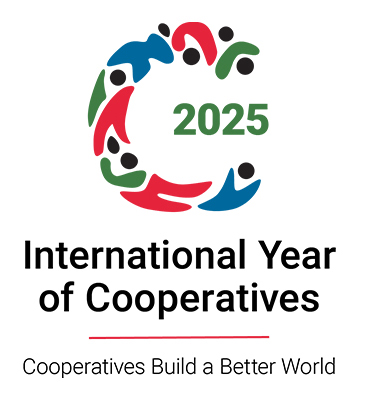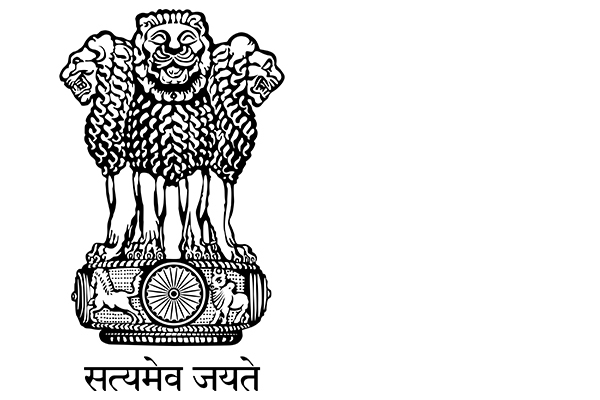Directorate of Information & Publicity
Govt. of NCT of Delhi
****
New Delhi: 06/02/2016
- Deputy CM & Finance Minister Manish Sisodia presents Delhi govt recommendations for union budget
- Delhi’s share in central taxes is stagnant since 15 years.
- Delhi deserves atleast Rs 5,000 crore from central taxes every year.
- To control air pollution, public transport augmentation requires a package of Rs 4,000 crore
- Delhi should get at least Rs. 2,000 crore as Basic and Performance Grants for Local Bodies similar to that of neighbouring states. This will facilitate to tide over the financial crisis in East and North Municipal Corporations.
- Deputy Chief Minister of Delhi and Finance Minister, Mr Manish Sisodia on Saturday presented the recommendations of the Delhi Government for the Union Budget at Pre-Budget consultations meet with the Union Finance Minister Mr Arun Jaitley.
- During his speech before the Finance Ministers of states, Mr Sisodia highlighted the peculiar problems faced by the national capital.
He said Delhi is deprived of resources required for investments. “Land is a valuable resource, which we don’t have. We don’t control land use. We don’t have share in Central Taxes. Our tax base is narrow because 87.5% of Gross State Domestic Product is from services.”
During his address, the Deputy Chief Minister of Delhi highlighted the following issues :
1. To control Air Pollution in Delhi the Delhi government in active collaboration with the citizens conducted Odd/Even scheme for the first time in the country. To augment public transport system in Delhi, a special package of Rs. 4,000 crore from the central government is required for purchase of 5,000 additional buses of different categories and segments which will encourage citizens to shift to public transport.
2. Delhi should be treated at par with other states for share in Central Taxes which is remained stagnant at Rs. 325 crore since 2001-02. This will enable Delhi to get at least Rs. 5,000 crore per annum as share in Central Taxes.
3. Delhi should get at least Rs. 2,000 crore as Basic and Performance Grants for Local Bodies similar to that of neighbouring states. This will facilitate to tide over the financial crisis in East and North Municipal Corporations.
4. Excise Duty on diesel vehicles may be increased because of the adverse effect on air pollution. We do not want to increase VAT on diesel vehicles as it leads to opening up of opportunities geographical tax arbitrage.
5. Government of India should formulate a scheme to address agrarian crisis and farmer distress. Compensation for crop damage of Rs. 50,000 per hectare on the lines of Delhi Model should be implemented at National Level.
6. Centre should implement recommendations of the Swaminathan Commission Report. MSP should be at least 50% more than the weighted average cost of production. Fair and remunerative MSP for diverse crops, including pulses, millets, and oilseeds, through direct procurement or timely market intervention.
7. Delhi Government fully supports introduction of Goods and Service Tax at the earliest.
(Detailed representation is attached).
Recommendations of Government of NCT of Delhi for the Union Budget
at
Pre-Budget consultations meet with
Hon’ble Union Finance Minister
and Hon’ble Finance States of all States and UTs
(6th Feb 2016, Shangri-La’s-Eros Hotel,
Ashoka Road, New Delhi)
Delhi is deprived of resources required for investments. Land is a valuable resource, which we don’t have. We don’t control land use. We don’t have share in Central Taxes. Our tax base is narrow because 87.5% of Gross State Domestic Product is from services.
Recommendations for the Union Budget:
Stagnation of Share in Central Taxes since 2001-02.
The Central Finance Commission constituted under Article 280 of the constitution make recommendations regarding the distribution between the union and the states of the net receipts of taxes which are to be, or may be, divided between them under chapter 1 part xii of the constitution and the allocation between the states of the respective share of such proceeds.
The NCT of Delhi being Union Territory with legislature is not included in the Terms of Reference of Central Finance Commission. Delhi gets an ad-hoc non plan grant in lieu of Share in Central Taxes of Rs. 325 Crore per annum which is stagnant from 2001-02.
As the capital of the country and one of the fastest growing metropolises, the claims on its resources are immense and varied. While Government of NCT of Delhi has to maintain infrastructure that meets world standards, it also has to improve supply of civic amenities to the burgeoning population who legitimately expect employment and a fulsome life in the capital. Consequently, large investments in Education, Health, Social, Food Securities, Transport, Roads and Hospitals etc. in NCT of Delhi have to be made.
The Budget of NCT of Delhi has increased from Rs. 8793 crore in the year 2001-02 to Rs. 41129 crore in 2015-16, whereas the share in central taxes has remained frozen at Rs. 325 crore since 2001-02. On the other hand, the tax devolution to neighboring states likes Haryana and Punjab has substantially increased. Haryana’s share has been increased from Rs. 15200 crore for 2010-15 to Rs. 42798 crore i.e. 1.084% of total tax devolution for 2015-20 and Punjab’s share from Rs. 20146 crore to Rs. 62263 crore i.e. 1.577% during the said period.
The Government of NCT of Delhi deserves its legitimate share in Central Taxes to finance the development needs. According to our estimates based on the recommendations of the Fourteenth Central Finance Commission, Government of NCT of Delhi may get a total of Rs. 25391 crore i.e. 0.643% as share in Central Taxes and requested to enhance the allocation to at least Rs. 5000 crore as share in central taxes as against Rs. 325 crore being released to Delhi.
Not getting due share of Local Bodies in Delhi as per 14th Central Finance Commission
The Government of NCT of Delhi regularly constituted State Finance Commission in pursuance of Article 243-I read with 243-Y of the constitution. As a recommendation of 3rd Finance Commission of GNCTD, we are providing 10.5 percent of our annual tax collection to the local bodies, However, local bodies in NCT of Delhi are not getting any Non-Plan support from the Government of India since Delhi being Union Territory with legislature is not included in the terms of reference of the Central Finance Commission. It is clear cut discrimination with local bodies in Delhi as all other local bodies of the states are getting sufficient amount in the form of non-plan grant from Government of India. It is worthwhile to indicate the fact that 14th Central Finance Commission (2015-20) had recommended an amount of Rs. 5963 crore to Local Bodies in Haryana and Rs. 6544 crore to Punjab. Thus, the local bodies in NCT of Delhi may be given at least Rs. 2000 crore as Basic and Performance Grants to Local Bodies.
Increase in Normal Central Assistance
The Normal Central Assistance to NCT of Delhi during 2000-01 was Rs 370 crore and still after 15 years it is only Rs 394.99 crore in the current year. However, the plan expenditure of Delhi has increased by 6 times from Rs 3129 crore in 2000-01 to Rs 19000 crore in 2015-16. The Normal Central Assistance which was 11.8% of the Plan expenditure in 2000-01 has declined to 2.07% in 2015-16. It is therefore requested to increase the Normal Central Assistance to atleastRs 1000 crore in the current year revised estimates and Rs 1500 crore in 2016-17 (BE).
Releasing the compensation on account of Central Sales Tax (CST)
The Government of India had assured to compensate to states for the loss of revenue due to the reduction of rate of CST from 4 percent to 3 percent and then to 2 percent. The Government of India has released Rs. 6612.86 crore to GNCTD as CST compensation from 2007-08. The total amount of compensation due from 2007-08 to 2011-12 is Rs. 9849.73 crore and the balance amount of compensation due after deducting the amount of Rs. 6612.86 crore already received, comes to Rs. 3236.87 crore. Thus the balance amount may be released to GNCTD.
5. Reimbursement of amount paid to Jammu & Kashmir Migrants
The Government of NCT of Delhi provides monthly Relief to J&K Migrants @ Rs. 1650 per member or Rs. 6600 per family of four and more members. At present there are 3279 families to whom compensation is being given. Government of NCT of Delhi has been making payment of adhoc monthly relief to J&K migrants since 1988-89 and a payment of Rs. 293.26 crore has been made upto 2014-15. It is therefore requested to reimburse the amount already incurred on account of the relief payment to the J&K Migrants.
6. Powers for giving Guarantee for taking loan
Government of NCT of Delhi has a separate Consolidated Funds and takes loan only from National Small Saving Fund @ 9.5% per annum. We have no power to borrow from Financial Institutions for capital projects at a lower interest rate, because we are prohibited from giving guarantee being Union Territory (with legislature) under section 47-A of the Government of Union Territories and the Government of NCT of Delhi (Amendment) Act, 2001. As a result, a number of capital projects in transport sector water, sewerage, power, low cost housing, tourism etc. could not be taken up due to limited resources with GNCTD.
We had already requested MHA to allow the GNCTD to give guarantee on the Consolidated Fund of GNCTD to avail loan of about Rs. 3000 crore for capital projects from various Financial Institutions or through market borrowing etc.
7. Exemption of Central Excise Duty for procurement of CNG buses& autos
To strengthen the public transport in NCT of Delhi about 4000-5000 new, modern and fully built up CNG buses are to be procured by DTC and by private operators under cluster scheme. Also, in order to ensure augmentation of public transport and smooth last mile connectivity various new auto permits are to be given by the Govt of NCT of Delhi. It is requested that the central excise duty which is about 12.625% on fully built buses and autos may be exempted to reduce the cost of public transport. To control Air Pollution in Delhi the Delhi government in active collaboration with the citizens conducted Odd/Even scheme for the first time in Country. To augment public transport system in Delhi, a special package of Rs. 4,000 crore from the Central Government is required for purchase of 5,000 additional buses of different categories and segments which will encourage citizens to shift to public transport.
8. Exemption of Basic Custom and other duty on purchase of medical & surgical equipment
The Govt. hospitals at the time of purchase of medical equipment make payment of about 11.64% as basic custom duty (BCD) and other duties by using the custom duty exemption certificate. To improve the better health delivery system in Govt. hospitals, the custom and other duties of 11.64% on purchase of medical equipments may be exempted.
9. Request for inclusion of Japan International Cooperation Agency (JICA) as a multi-lateral funding agency for claiming deemed export benefits
As per new Foreign Trade Policy (FTP) 2015-20, JICA has been removed from the list of Multi-Lateral Funding Agency for enabling claim of Deemed Export Benefits (DEB) under FTP. DMRC is presently involved in execution of its Phase-III project with total investment of over Rs. 46000 crore and the part funding for the project is being extended by JICA.
The tenders awarded for various works for Phase-III of Delhi MRTS projects funded by JICA have considered applicability of Deemed Export Benefits (DEB) for the contracts and the bidders have quoted their price for the supply of goods on an assumption that DEB being available. Withdrawing the DEB midway will pose additional liabilities on DMRC thereby escalating the project cost substantially.
It is therefore requested that delisting JICA from the list of Multilateral Funding Agency for claiming Deemed Export Benefits may be reversed.
10. Provision of payment made by GNCTD to 1984 riot victims
An amount of Rs115.35 crore is required in current year for making payment of enhanced relief of Rs 5.00 lakh per deceased person who died during 1984 anti Sikh riots + Rs 8.70 crore for re-imbursement on account of payment of enhanced relief of Rs 5.00 lakh per deceased person already made during 2014-15.
11. Increase Excise Duty on Diesel Vehicles
Excise Duty on diesel vehicles may be increased because of the adverse effect on air pollution. We do not want to increase VAT on diesel vehicles as it leads to opening up of opportunities geographical tax arbitrage.
12. Reduce Excise Duty on Medical and Surgical Instruments
Excise Duty on medical and surgical instruments and equipment may be reduced due to escalating cost of healthcare and expectation of the people that state should provide top end health care to all.
13. Support for the Goods and Services Tax
The Government of NCT of Delhi would like to express its support for the key indirect tax reform, that is, the Goods and Serives Tax (GST). For nearly a decade, India has seen many impediments, technical as well as political, in the successful passage and implementation of this reform legislation. We hope that the Government of India, keeping in mind the Constitutional requirement of fiscal federalism, will positively resolve the technical queries raised by State Governments and undertake confidence building measures for seeking support of opposition political parties to ensure a smooth passage and early implementation.
14. Focus on tackling agrarian crisis and farmer distress
During this financial year, the Government of NCT of Delhi gave compensation of Rs.20,000 per acre (Rs.50,000 per hectare) to Delhi’s farmers who lost their crops owing to unseasonal rains and hailstorm. Considering the state of agrarian crisis in India, rapidly growing number of farmer suicides in states of Punjab, Maharashtra, Uttar Pradesh etc., and the depressing figures of agriculture growth - we urge the Government of India to substantially increase its budgetary allocation towards farmer compensation at least matching the benchmark set by the Government of NCT of Delhi, of Rs.20,000 per acre. Some other suggestions in this regard:
Implementing recommendations of the Swaminathan Commission Report. MSP should be at least 50% more than the weighted average cost of production. Fair and remunerative MSP for diverse crops, including pulses, millets, and oilseeds, through direct procurement or timely market intervention.
Safeguard farmers and consumers from unwarranted financial speculation in agricultural commodities.
Ensure that farmers get a higher share of entire supply chain, by greater investment in agro-processing industries and marketing infrastructure (like cold storage, warehouses, etc).
Increase investment in agriculture, with particular focus on closing yield gaps and minimizing post-harvest loss through research, extension services, agro-processing, and connectivity in rain-fed and dry land areas. Ensure reliable electricity supply to agriculture.
Increased financial and non-financial incentives, including tax breaks, liberal licensing, and land grants, for participating in Farmer Producer Organizations and other such collective bodies. All central schemes to prioritize group activity.
Both APMC-run mandis and modern markets to operate with high levels transparency, with fair auctions, timely bank payments to farmers, and clear e-records of produce purchased and stored.
****


 Directorate of Information & Publicity
Directorate of Information & Publicity 


